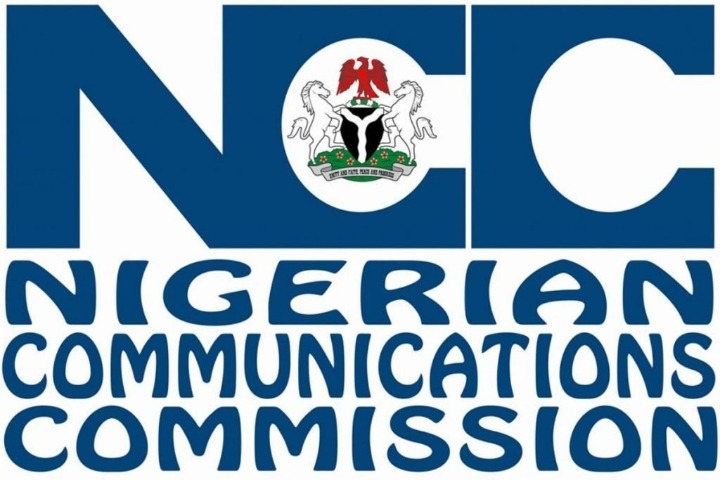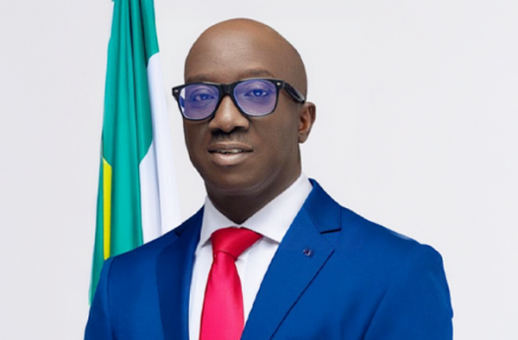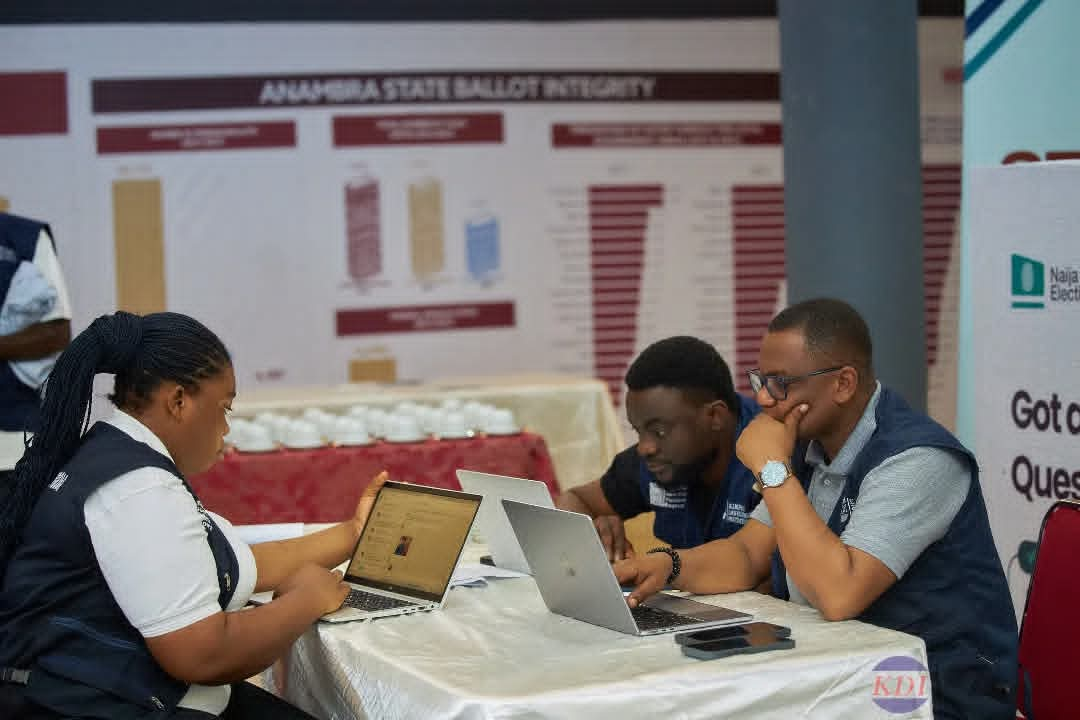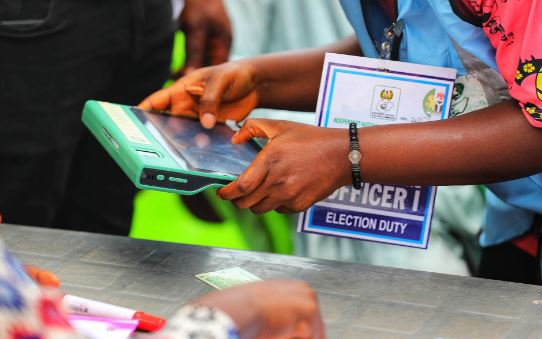News
NCC Warns Nigerians Of New Ways Hijackers Attack Computers

The Nigerian Communications Commission’s Computer Security Incident Response Team (NCC-CSIRT) has urged organisations to adopt stronger cybersecurity measures.
These measures include ensuring that organisations’ employees use strong, unique passwords for every account and enabling multi-factor authentication (2FA) wherever it is supported to prevent ransomware attacks as well as advising organisations to ensure regular systems backup.
The NCC-CSIRT’s warning contained in its advisory of August 12, 2022, came after the Yanluowang threat actors gained access to Cisco’s network using an employee’s stolen credentials after hijacking the employee’s personal Google account containing credentials synced from their browser.
READ ALSO: Broadband Penetration Hits 44.5% As NCC Reviews Short Code Services
Ransomware is a malware designed to deny a user or organization access to files on their computer until they pay the attackers.
Cisco reported the security incident on its corporate network but said it did not identify any impact on its business although the threat actors had published a list of files from this security incident on the dark web on August 10.
NCC-CSIRT estimated potential damage from the incident to be critical while predicting that successful exploitation of the ransomware will result in ransomware deployment to compromise computer systems, sensitive products and customers’ data theft and exposure, as well as huge financial loss to organizations by incurring significant indirect costs and could also mar their reputations.
The team said, “The first step to preventing ransomware attacks is to ensure that employees are using strong, unique passwords for every account and enabling multi-factor authentication (2FA) wherever it’s supported.”
It further disclosed that “In response to the attack, Cisco has immediately implemented a company-wide password reset. Users of Cisco products should ensure a successful password reset.
“As a precaution, the company has also created two Clam AntiVirus signatures (Win.Exploit.Kolobko-9950675-0 and Win.Backdoor.Kolobko-9950676-0) to disinfect any potentially compromised assets. Clam AntiVirus Signatures (or ClamAV) is a multi-platform antimalware toolkit that can detect a wide range of malware and viruses.
“User education is critical in thwarting this type of attacks or any similar attacks, including ensuring that employees are aware of the legitimate channels through which support personnel will contact users, so that employees can identify fraudulent attempts to obtain sensitive information. Organisations should ensure regular systems backup,” the advisory urged.
READ ALSO: Beware, New App Approves Illegal Payments, NCC Alerts Nigerians Again
The CSIRT is the telecom sector’s cyber security incidence centre set up by the NCC to focus on incidents in the telecom sector and as they may affect telecom consumers and citizens at large.
The CSIRT also works collaboratively with the Nigeria Computer Emergency Response Team (ngCERT), established by the Federal Government to reduce the volume of future computer risks incidents by preparing, protecting and securing the Nigerian cyberspace to forestall attacks, problems or related events.
News
Okpebholo’s One Year Performance Outshines Some governors’ 8 Yrs, Says Idahosa

The deputy governor of Edo state, Rt. Hon. Dennis Idahosa says Governor Monday Okpebholo’s performance within his first year in office surpasses some state governors achievements in eight years of office.
In a statement by his Chief Press Secretary, Mr Friday Aghedo, the deputy governor was quoted to have said this when he played host to delegation of Esan Daughters Development Initiative of Edo State in his office on Thursday.
He assured that Okpebholo’s administration has just taken off, adding that with the support of the people, Edo will record remarkable achievements in few months to come.
Idahosa noted that with his SHINE Agenda, Okpebholo is poised to entrench good governance across the nook and cranny of the state.
READ ALSO:Okpebholo’s Eight-year Tenure Non-negotiable, Says Commissioner
He particularly noted that Okpebholo policies are people centric.
While noting that the unity of the people remains the governor’s primary concern, Idahosa reeled out names of Esan extraction who made impact on Esan land and Edo State in general.
According to him, “Distinguished Senator Monday Okpebholo, to me, is God’s gift to Esan land,” and, “the entire Edo State people are happy with him.”
The President, Esan Daughters Development Initiative of Edo State, Mrs. Kate Osaro commended Idahosa for his complementary role to Okpebholo.
According to her, their complementary roles have ensured peace reign in the state and solicited for its sustainability.
READ ALSO:Okpebholo’s Eight-year Tenure Non-negotiable, Says Commissioner
In related vein, Idahosa received and congratulated Management, Staff and Students of “Our Lady of Mercy Nursery and Basic School” on their forthcoming school’s 50th anniversary.
He appreciated the school’s management for helping to shape and impact the lives of students and society.
He deemed it an honour having the organizing committee lead pupils of the school to his office.
He encouraged them (Pupils) to aspire to greater heights by participating in politics to becoming future governors and deputy governors of the state.”
READ ALSO:
Speaking earlier on behalf of the school’s Golden Jubilee Organizing
Committee, Amb. Philip Ogbebor
said, “we are grateful for the role that the Edo State Government has played in supporting education in the state.
“Your leadership and commitment to enhancing the educational sector have not gone unnoticed, and we recognize the significant strides being made under your administration.
“We believe that education is the key to unlocking a brighter future for our children, and we are pleased to be part of that effort in the state.”
News
#AnambraDecides: Transport Unions Endorsement Of Soludo Could Undermine Perceptions Of Neutrality — KDI

The Kimpact Development Initiative (KDI), has expressed concern that the endorsement of governor Charles Soludo of Anambra State by the Joint Transporter Forum could undermine perceptions of neutrality in the November 8 governorship election, owing to the role they play in conveying sensitive and non-sensitive materials during elections.
KDI said since INEC relies heavily on these unions —NURTW, RTEAN, Keke, Okada, and Bus Unions — for material transportation, their partisan alignment could undermine perceptions of neutrality, risk delays, and erode public confidence in the process.
Bukola Idowu, Executive Director, expressed the organisation’s concern at a pre-election briefing held in Akwa on Friday.
“The endorsement of the incumbent governor by the Joint Transporter Forum, comprising NURTW, RTEAN, Keke, Okada, and Bus Unions, raises a significant logistical red flag,” KDI worries.
INEC’s Preparedness
The KDI, while noting that INEC has largely demonstrated logistical readiness, some operational gaps persist.
“KDI’s comparative analysis of INEC’s preparedness for the 2025 Anambra Governorship Election against the 2024 Ondo Off-Cycle Election reveals a mixed outlook on operational readiness.
READ ALSO:Anambra Decides: CDD Advocates Neutrality, Seamless Process; Says Litmus Test For Amupitan
“The training of ad-hoc officials concluded only on November 6, 2025, two days before the election, compared to a timelier completion in Ondo 2024 left no room for mock drills or refresher sessions, limiting INEC’s ability to evaluate the competence of ad-hoc personnel and replace unfit or unavailable staff ahead of election day.”
The CSO, however, commended INEC for the “continuous engagement with stakeholders and improvements in technology usage, particularly through the BVAS and IREV platforms,” saying that it “remains positive indicators that, if effectively managed, can mitigate these risks and enhance the credibility of the process.”
Pre-election Observation, Warning
KDI observed that voter turnout in Anambra has fallen by over 58% in the last eight years, attributing this decline to insecurity, logistical and geographical challenges, warning that “special attention must then be paid to these areas lest Anambra risks experiencing another historically low voter turnout in tomorrow’s governorship election.
“Despite consistent growth in voter registration.It will appear that voter turnout is falling at the same rate at which voter registration was growing. This means that while more citizens are registering to vote, fewer are turning out on election day, a troubling trend that points to deepening voter apathy and declining trust in the electoral process.”
READ ALSO:Anambra Poll: INEC Begins Distribution Of Election Materials
On intolerance during election, KDI said while the overall security risk across the state remains moderate, several localized flashpoints persist in areas historically prone to electoral tension, political rivalry, and voter intimidation.
“The analysis identifies Aguata and Ihiala as severe-risk areas, with a high likelihood of violence or disruption on election day.
“Nnewi North, Nnewi South, and Ogbaru are categorized as high-risk LGAs, while the remaining local governments are assessed as being at a moderate risk level.
“In practical terms, this means that LGAs classified as severe or high risk face a greater probability of experiencing election-related disturbances, ranging from logistical delays and voter suppression to violent clashes, unless proactive measures are taken.
READ ALSO:Anambra: EU Deploys 687 Observers Ahead Of Saturday Gov Election
“Conversely, moderate-risk areas could be relatively peaceful, provided preventive actions are maintained and early warning signals are properly addressed.”
KDI, therefore, urged security agencies to uphold professionalism, neutrality, and restraint in their election-day operations.
“Security deployments should prioritize visible but non-intimidating presence in identified flashpoints, timely intelligence sharing, and rapid response coordination to ensure the safety of voters, election officials, and materials across all 21 LGAs,” KDI noted.
KDI, however, expressed optimism of a largely peaceful election, just as it emphasized that the “credibility of the process will depend on timely deployment, transparent procedures, and restraint by political actors and their supporters.”
The CSO also called on eligible voters to come out peacefully, exercise their civic rights, and resist any attempt to disrupt the process or sell their votes.
News
Anambra Decides: CDD Advocates Neutrality, Seamless Process; Says Litmus Test For Amupitan

The Centre for Democracy and Development (CDD-West Africa) has described the November 8 Anambra governorship election as a litmus test for the new INEC chairman, Professor Joash Amupitan, and a crucial test of Nigeria’s democratic resilience and institutional credibility.
CDD Africa made this remarks in Akwa on Friday at its pre-election briefing and opening of its Election Analysis Centre (CDD-EAC).
CDD-West Africa, while calling on INEC “to maintain neutrality and ensure seamless electoral processes, in the November 8 election,” noted that while INEC has taken commendable steps to improve logistics and planning, “confidence remains fragile.”
It urged the electoral umpire to deploy voting materials timely, and ensure BVAS/IReV function smoothly .
It also urged security agencies to protect citizens “without intimidation or selective enforcement,” and appealed to political parties to “shun vote buying and commit to peaceful conduct.”
CDD West Africa further called on civil society and the media to amplify factual information and promote inclusive participation, while encouraging citizens to come out and exercise their democratic right to vote.
READ ALSO:Off-season Elections: Vote Buying, Violence Remain Sore Points – CDD
“With the CDD Election Analysis Centre (EAC) now fully operational, our disinformation experts will be working throughout the period to monitor, fact-check, and respond to emerging narratives,” the organisation said.
“The 2025 Anambra Governorship election is more than a sub-national election,” CDD-West Africa declared.
“We call on all actors to prioritise national interest, protect democratic integrity, and ensure a peaceful, credible and inclusive election,” it said.
Pre-election Observation
The CDD West Africa raised concerns over low electoral competitiveness, predictable voter apathy, and the fragility of key institutions ahead of the governorship election.
READ ALSO:Ondo Election: Explain Discrepancies in Final Result, CDD Charges INEC
The CSO criticised political parties for their inability to mobilise and sensitise voters, saying that internal crises within major parties have weakened electoral competitiveness in the state.
On Security, CDD West Africa warned that weak oversight of vigilante groups and a history of violence particularly in Ihiala, Nnewi South, Orumba South, and border communities such as Lilu, Azia, and Amorka, could lead to low voter turnout, urging security agencies to “act professionally and protect voters without bias.”
On incumbency and federal influence, the organisation observed that the ruling All Progressives Grand Alliance (APGA) and the incumbent governor benefit from visibility advantages, new political alignments, and control over state influence channels.
It referenced the Anambra State Signage and Advertisement Agency’s (ANSAA) June 11, 2025 announcement imposing a N50 million permit fee for political parties’ billboard and outdoor campaigns, saying the policy “limits access for different political parties and increases campaign costs,” despite the N1 billion campaign spending cap under Section 88(2) of the 2022 Electoral Act.
On misinformation, CDD-West Africa raised the alarm over the state’s information environment, identifying widespread misinformation, disinformation, and hate speech as major threats to the election’s integrity.
READ ALSO: GhanaDecides2024: CDD Calls For Active Participation, Free, Fair Polls
The organisation’s assessment found “unequal access to information, gender-specific vulnerabilities, inadequate stakeholder preparedness, and persistent electoral risks.”
The CDD identified seven dominant patterns of information manipulation viz: targeting of security institutions with partisan bias claims, exploitation of religious divides, manipulation of political endorsement narratives, weaponisation of insecurity and “unknown gunmen” narratives, distortion of Igbo campaign statements, narratives questioning INEC’s competence, and gendered hate speech aimed at discouraging women’s participation.
According to the CDD, “This is another opportunity for the two million, eight hundred and two thousand, seven hundred and ninety (2,802,790) registered voters in the state to make their voices heard in electing the next state governor.”
It noted that despite INEC’s report of a 98.8 percent Permanent Voter Card (PVC) collection rate, the group expressed concern that this might not translate into high voter turnout.
The group, while lamenting continued exclusion of women, youth, and persons with disabilities (PWDs) from the political space, noted that “only two women are contesting, both from minor parties,” while there are “no PWD candidates” and polling accessibility remains poor.

 News5 days ago
News5 days agoJUST IN: Police Declare Sowore Wanted

 News5 days ago
News5 days agoVIDEO: Pastor Adefarasin Reacts To US Genocide Claims In Nigeria

 Headline5 days ago
Headline5 days agoVIDEO: Again, Trump Insists On Christian Killings In ‘Record Numbers In Nigeria’

 News5 days ago
News5 days agoCountry Of Particular Concern: What It Means For Nigeria

 News4 days ago
News4 days agoI’ll Support Trump To Fight Terrorism In Nigeria If… – Wike

 Entertainment4 days ago
Entertainment4 days agoNigerian Musician Dies In Canada

 Politics5 days ago
Politics5 days agoJUST IN: Mohammed Assumes Duty As PDP Acting Chair Amid Tight Security

 Politics4 days ago
Politics4 days agoProtest Rocks PDP National Secretariat As Wike-led Faction Takes Over

 Politics4 days ago
Politics4 days agoObaseki’s Media Aide Tackles Edo Information Commissioner Over Alleged ₦600bn Debt

 Politics3 days ago
Politics3 days agoJUST IN: Reps In Rowdy Session, Reject Key Motions




























